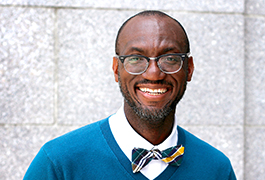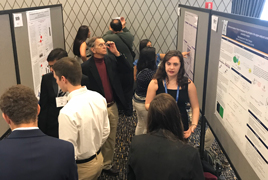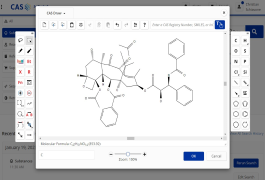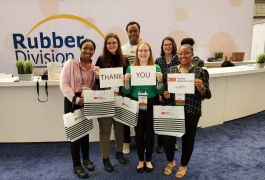Meet Eminent Scientist JoAnne Stubbe
One way to gauge how passionate a person is about their profession is by observing how deeply it pervades various other parts of their life. In the case of JoAnne Stubbe, a pioneer in the field of enzyme kinetics, she named her Cairn Terrier Dr. McEnzyme Stubbe. And a line-drawing of “’Zyme” graces her research group’s web page. What could be more fitting?
The first thing you notice about Stubbe is her laugh. Nearly everything she says is punctuated with a joyous series of quick chuckles that come from the immense pleasure she takes in her life’s work. It somewhat belies the serious nature of her research.
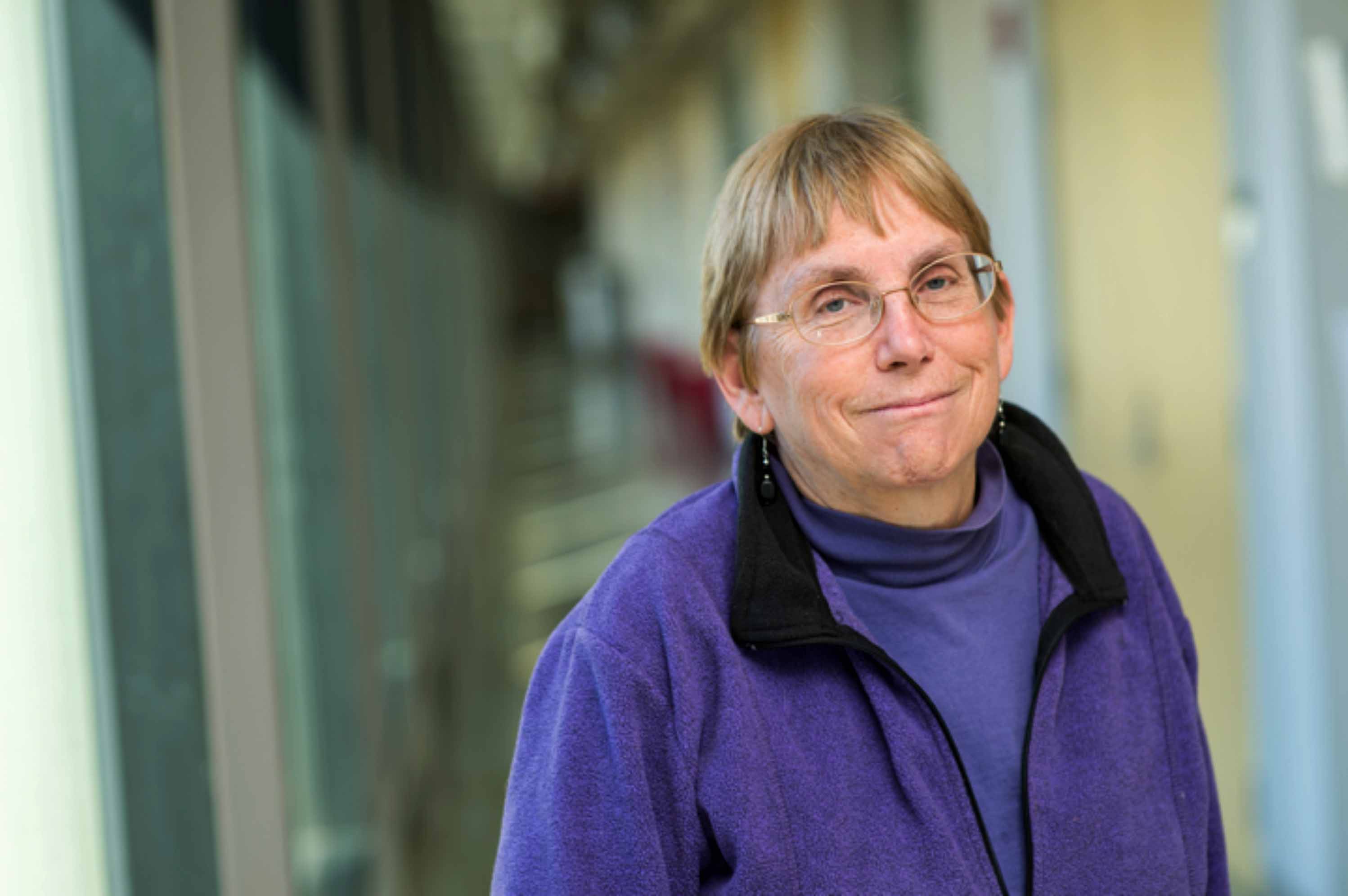
Her fundamental research into the complicated mechanisms of enzyme action in DNA replication and repair have produced lifesaving, anti-cancer medicines and laid a pathway for even more breakthroughs. The United States honored Stubbe in 2009 with the nation’s top honor: The National Medal of Science. She has a lot to be happy about.
Stubbe graduated with high honors from the University of Pennsylvania in 1968. She earned a PhD in organic chemistry from the University of California, Berkeley, in 1971. After college, she embarked on a couple of postdoctoral opportunities and a university teaching position at Williams College. Not long after, she realized her main passion in science was research. It was at Brandeis University that Stubbe learned some of the basic concepts for what would become her research focus for much of her career. Then, in 1980, Stubbe joined the biochemistry department at the University of Wisconsin.
In 1987, became a professor in the chemistry department at the Massachusetts Institute of Technology (MIT), and she was the first woman to receive tenure in that department. She later received a joint appointment in the biology department of MIT. She retired from MIT in 2017 and is a professor emerita at the institution.
Stubbe is the Eminent Scientist lecturer for the core student program at the Fall 2018 ACS national meeting.
On August 20, she will present “The Road Less Traveled: For Love of Detection and Discovery.” In high anticipation of this talk, iC had a chance to chat with Stubbe about her life, her career, and the seeds that were planted on her groundbreaking path.
What sparked your interest in science?
A lot of the reason for my interest in science had to do with my interest in nature. As a child I was always outdoors and loved being out in nature. My grandfather was a great outdoorsman and taught me how to fish for trout and identify wildflowers. I was always collecting specimens from the area I lived in. I would collect all types of flowers because I thought they were beautiful. I rounded up a bunch of neighborhood kids and formed a nature club. I would organize them for walks in the woods like I had taken with my grandfather, and we all learned about the plants and animals in our area together. One of the early jobs I created for myself was collecting crayfish, which I would then sell to make money.
While I was very interested in nature, I wasn’t especially interested in science, at least until high school. I had a fantastic high school chemistry teacher: Mr. McCue. The thing I loved about chemistry was all the colors, especially the crystals. They always fascinated me. Unlike most of the boys in chemistry, I didn’t like the explosions or fires. In fact, in undergraduate school I almost quit chemistry on a number of occasions because I hated all the explosions and bad solvents we used routinely.
Early on in your career, did you face challenges that men didn’t because you were a woman?
I never really gave much thought to the idea that I was a woman pursuing an interest in science. I just considered myself as someone who loved to figure out how things worked and learned as much as I could--at least until graduate school, when some people had other ideas about who should be working in science. But I never let that get in my way, and I was always able to find opportunities to do what I loved.
In the memoir Lab Girl by geobiologist Hope Jahren, a pivotal moment occurs when the protagonist finally felt like a “real, live, actual scientist.” Did you have such a moment?
Not really. I always considered myself a scientist, even when I was a child. For me it was all about finding out how things worked and understanding them. I was always intrigued by mysteries. It didn’t matter if it was one of the mystery novels that I read or a reaction in the laboratory that happened after mixing a couple of things together. I have always been driven to work out the explanations for the puzzles that interested me. Of course, there is always a special thrill when you discover something that was totally unknown previously, but I have an especially deep and abiding satisfaction in solving mysteries at any level.
Were you ever torn between pursuing academic research and moving to industry?
My primary research has involved how enzymes work. Specifically, how enzymes called ribonucleotide reductases use free-radical chemistry to convert nucleotides into deoxynucleotides. This involves essential processes for DNA repair and replication. My research group’s analysis of the nucleotide reduction process led to a number of applications, including the anticancer drug gemcitabine, which is used to treat various carcinomas, such as pancreatic cancer, breast cancer, and non-small cell lung cancer. My greatest reward comes from figuring out how to approach the research and discover how the basic science might be applied to help fight disease.
I’ve never really been interested in pursuing the development of drugs past that point. There are so many other interesting problems to pursue.
The key idea in developing any kind of drug is to find something that is deadly to the cancer cell or infecting bacteria or virus, while at the same time not harming the patient. Since they are both living things, that is always very difficult to do. Luckily, some of my basic research has uncovered some fundamental differences between the way bacterial enzymes work when compared to humans. This has some real potential for future drug development.
Sometimes chemists who spend too much time concentrating on their teaching load are looked on as not being serious about their career or profession. How do you view the role of scientists as teachers?
I’ve always considered myself a teacher. Both my parents were teachers, and my life was profoundly influenced by the teachers and educational opportunities I had. While I was in high school I was lucky to have the chance to work in labs at Clark University. Later I had NSF [National Science Foundation] summer fellowships to attend. I’ve tried to provide the same kinds of experiences and opportunities to my students.
I really think that learning has to occur in the context of solving a problem. I’m also a fan of undergraduate research programs, especially if undergrads are able to do research in a number of different labs. Science tends to get divided into separate silos, but that isn’t the way the world works. I never really had any biology in high school or college, but when I did start to learn about biology and biochemistry, it opened up a whole new world for me. I’m a big believer in the idea of a multidisciplinary approach to doing science. That is the way almost all my colleagues here at MIT view science as well, and that is how we teach our students.
You are very active in the ACS community. What are your favorite experiences?
I have been an ACS member for over 50 years, starting in graduate school in the late 1960s. I was program chair for the Biological Chemistry Division [BIOL] and later the chair of that division. I have been on editorial boards for the Journal of the American Chemical Society [JACS], Biochemistry, the Journal of Organic Chemistry, and Chemical Reviews. Early in my career, I did not feel I did my job well, as I was completely overwhelmed by my normal research and teaching. Later in my career I was able to make a better contribution, especially as they needed women on the editorial boards back in those days.
I was actively involved in trying to get the ACS to add a biochemistry requirement for ACS-approved undergraduate chemistry programs. It took a long time for ACS to believe that biochemists know, appreciate, and are good at doing chemistry!


